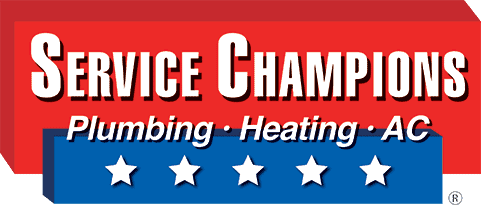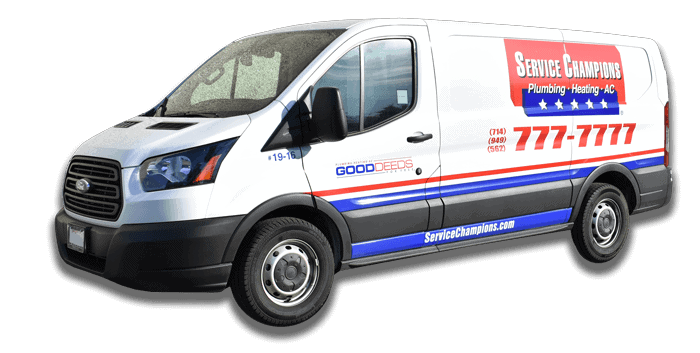How to Avoid an Emergency Plumber Visit
We’ve all been there. Late at night, standing over the toilet, plunger in one hand, phone in the over, staring down at an overflow of water. “Who am I going to call,” you ask yourself as water starts to spill over the lip of your toilet bowl. While your mind races, you think back, “what could I have done to prevent this,” as water begins to creep towards your toes. Though the nightmare scenario may be very real for some of us, there are simple ways you can avoid this all together. If you want to avoid an emergency plumber visit, keep reading.
Mind What You Put Down the Drain
One of the best ways to avoid an emergency plumber visit is to mind what you’re putting down the drain. This goes for both the kitchen and bathroom sinks. Too often we see small clogs go overlooked and those eventually turn in huge issues. With this in mind, we can use a number of methods to unclog a sink. However, the best way to combat a clogged sink is to be careful about what you’re putting in there. We’ve put together some lists of what to not put down your sink. Some of the items on these lists may be obvious, others not so much.
Please do not send any of these down your kitchen sink:
- Cooking Liquids – Oils, fats, and greases harden when they cool which makes a particularly nasty blockage.
- Coffee Grounds – Coffee grounds are one of the most common things we find in backed up sinks.
- Paint – Though paint can easily go through your system, it can cause serious environmental damage.
- Pasta and Rice – Both pasta and rice expand when they get wet. If they end up in your drain the constant water can make them expand in your pipes and cause a significant backup.
- Eggshells – Some say eggshells can help sharpen the blades on a garbage disposal. This is not true. Eggshells will dull the blades in your garbage disposal, and the shell shards can easily add to any existing blockage.
While the same principle can be applied to bathroom sinks, there are generally a few more things to watch for in the bathroom. This list includes things that can accidentally end up in your bathroom sink but can cause serious havoc on your system.
Make sure none of these end up down your bathroom sink:
- Hair – Hair is the best material to clog a sink. It clumps together when wet and will stick easily to any existing blockage in your drain. This also goes for shaving over the bathroom sink.
- Medication – Medication won’t hurt or contribute to any existing clog. Despite this, they should never be flushed down the drain. Certain medications can be harmful to the environment and marine species.
- Q-Tips and Cotton Balls – Cotton balls and Q-tips will not break down in your drain. In fact, they’ll absorb water to become bigger. Bad news if you want a sink that drains.
- Large Soap Chunks – If a piece of a soap bar breaks off in your sink, it’s easy to just wash down the drain. Don’t do this. When soap comes in contact with hard water it creates soap scum, which loves to cause clogs.
One of the best ways to avoid any of the items listed above from going down your drains is to install a stopper or sink strainer that will catch most of the solid items.
Don’t Flush That
In the same vein as the part above, one of the best things you can do to take care of your toilet is mind what you’re flushing. Some of our most disastrous emergency plumber visits happen when someone flushes something they really shouldn’t have. To take the best care of your plumbing system, here is a small list of things to not flush down your toilet. Though some of these items may seem obvious, you’d be surprised at what we’ve seen. Also, it should go without saying, but if you shouldn’t dump something down the drain, you definitely shouldn’t flush it down the toilet.
- Flushable Wipes – This is perhaps our biggest issue. Just because a wipe says it’s flushable—we’re looking at makeup wipes too—does not mean you should flush it. “Flushable” in this context means it leaves the bowl, but not your plumbing system. These wipes can cause serious backups.
- Kitty Litter – Kitty litter is made to expand up to 60,000 times it’s original size. This stuff should stay away from your toilet at all costs.
- Menstrual Products – products such as pads and tampons are not made to break down in water. In fact, they grow in water, and can cause a major clog.
- Diapers – As with many things mentioned on this list, diapers will not break down in water, they will expand and cause a massive backup.
- Paper Towels – Paper towels are also in the “expand with water” club. They are not made to break down the same way toilet paper is, so no matter how desperate you are, don’t flush the paper towels.
Preventative Maintenance is a Plus
When it comes to the care and keeping of your plumbing system, a little cleaning can go a long way. We recommend cleaning your drain once every month. There’s a very simple way to do this that involves organic materials and takes under 20 minutes. All you need is vinegar, baking soda, and water. First, boil some water on the stove, we recommend doing this with a tea kettle. Pour that boiling water down your sink. Then pour one cup of baking soda followed by a solution made of half a cup of white vinegar and half a cup of water. Cover the drain plug and wait between 10 and 15 minutes. Once the time is up, pour another round of boiling water down the drain. Now you have a clean drain. At most, this should be done once a month.
Call Service Champions to Clear Your Drains
Are you dealing with a backup or bigger plumbing issue? No need to worry, we’re here for you. Our expertly trained plumbers proudly serve parts of Los Angeles, Orange, and Riverside counties. We’re also here for all your HVAC needs. To schedule an appointment, click here to book online, or reach out to one of our capable call center representatives.

